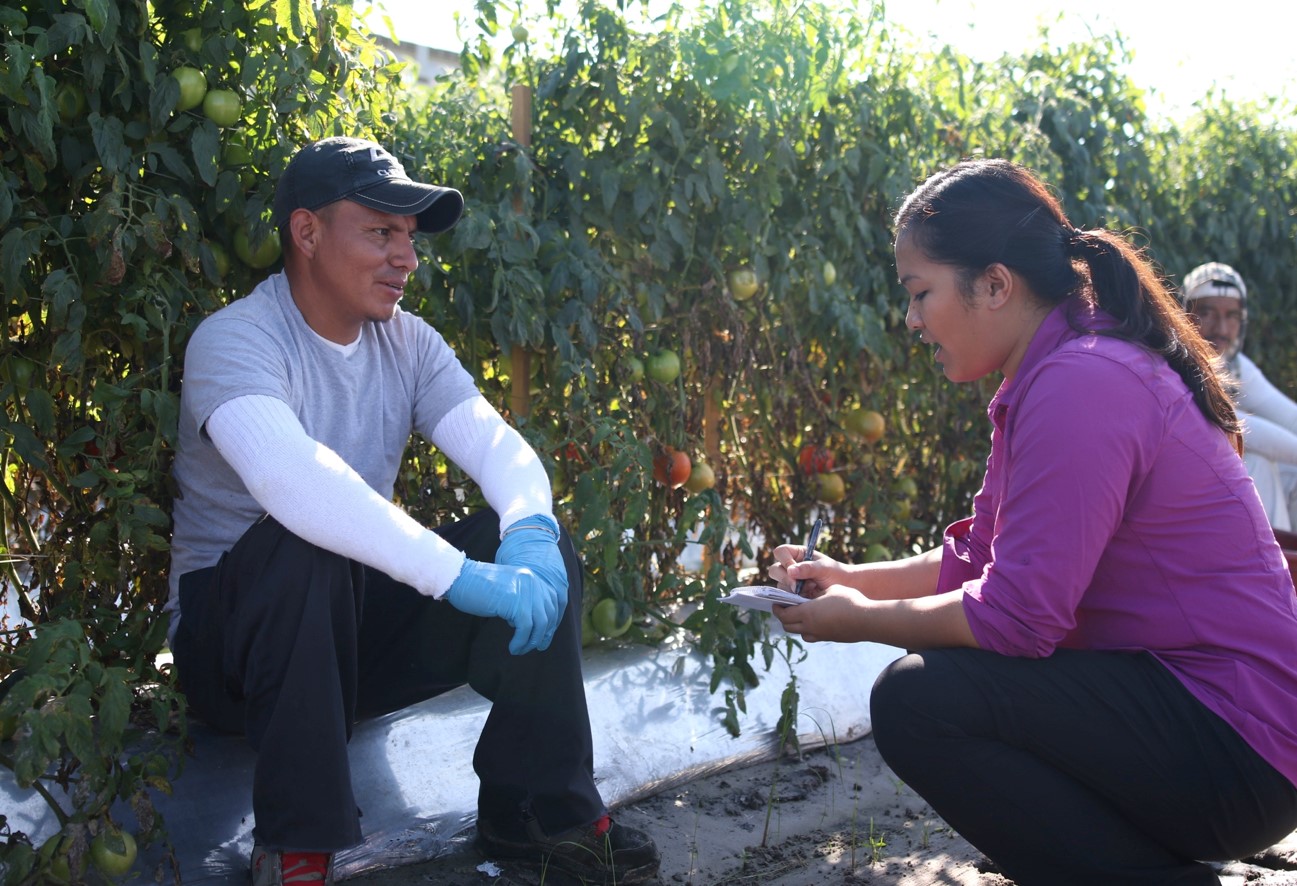Example in Action: Fair Food Program

The Fair Food Program (FFP) emerged from the Coalition of Immokalee Workers’ (CIW) successful Campaign for Fair Food, a worker-led organizing campaign to affirm the human rights of tomato workers and improve the conditions under which they labor.
The FFP is a unique farmworker- and consumer-driven initiative consisting of a wage increase supported by a price premium paid by corporate purchasers of Florida tomatoes, and a human-rights-based Code of Conduct, applicable throughout the Florida tomato industry. The price premium and the Code of Conduct, which were developed by tomato workers, growers, and corporate buyers in a groundbreaking collaboration, form the foundation of a worker-driven social compliance mechanism. The grievance mechanism component of the FFP is regarded as having successfully eradicated sexual harassment and coercion in Florida’s agricultural fields, one of the world’s toughest labor rights environments.
In 2023, ILAB awarded the Fair Food Standards Council (FFSC) $2.5 million over 2 years to assess and expand the successful Fair Food Program model by implementing a pilot project to promote human and labor rights on cut flower farms in Chile, Mexico, and South Africa. The project aims to:
- (1) Increase labor and human rights protections and compliance with labor laws on flower farms, and
- (2) Increase understanding of factors affecting the scalability and replicability of the FFP model in pilot countries.
The project will support an initial feasibility study and assessment of an international expansion of the FFP model to promote labor rights and worker-driven social responsibility—a model that has been implemented in U.S. agriculture since 2011. The project will evaluate implementation of the FFP model in the three countries using a comparative assessment to determine which factors promoted or hindered the implementation.
For more information, visit: https://ciw-online.org/ffp_faq and https://www.dol.gov/agencies/ilab/project-expand-and-assess-fair-food-program-ffp-model-promotion-human-rights-and
DOL welcomes examples of good practices
to address child labor and forced labor.
Email us at GlobalKids@dol.gov.

 Step 3: Develop a Code of Conduct
Step 3: Develop a Code of Conduct


